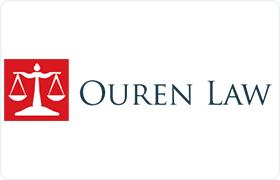Zillah Misdemeanor Lawyer, Washington, page 5
Sponsored Law Firm
-
 x
x

Click For More Info:
-
Ouren Law
4101 South Union Street Kennewick, WA 99337» view mapCriminal Defense Dedicated. Straightforward. Tough.
With more than a decade of experience, Attorney Ouren has helped many clients achieve successful results in their family law and criminal law matters.
800-971-6601
Not enough matches for Zillah Misdemeanor lawyer.
Below are all Zillah Criminal lawyers.
Barry Michael Woodard
Lawsuit & Dispute, Federal, Criminal, Civil Rights
Status: In Good Standing Licensed: 36 Years
Glen Paul Warren
Federal, Child Custody, DUI-DWI, Bankruptcy
Status: In Good Standing Licensed: 47 Years
Etoy Alford
Federal, Criminal, Civil Rights, Insurance, Mass Torts
Status: In Good Standing Licensed: 24 Years
Shelly L Brown
Juvenile Law, Other, Lawsuit & Dispute, Civil Rights
Status: In Good Standing Licensed: 22 Years
George Paul Trejo
Criminal, Civil Rights, Personal Injury, Malpractice
Status: In Good Standing Licensed: 34 Years
Scott A. Bruns
Criminal, Civil Rights, Insurance, Accident & Injury
Status: In Good Standing Licensed: 40 Years
Amy Marie Poulin
Commercial Bankruptcy, Federal Appellate Practice, Criminal, Commercial Real Estate
Status: In Good Standing Licensed: 44 Years
Jamil L Gill
Criminal, Bankruptcy & Debt, Personal Injury, Accident & Injury
Status: In Good Standing Licensed: 19 Years
 Kimberly Ouren Kennewick, WA
Kimberly Ouren Kennewick, WA Practice AreasExpertise
Practice AreasExpertise